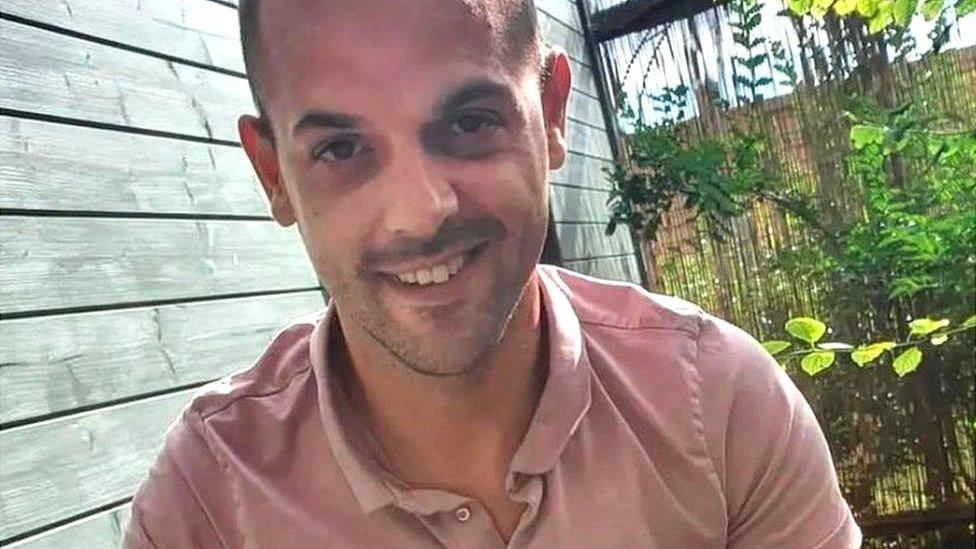Warminster stroke survivor raising awareness of aphasia
- Published
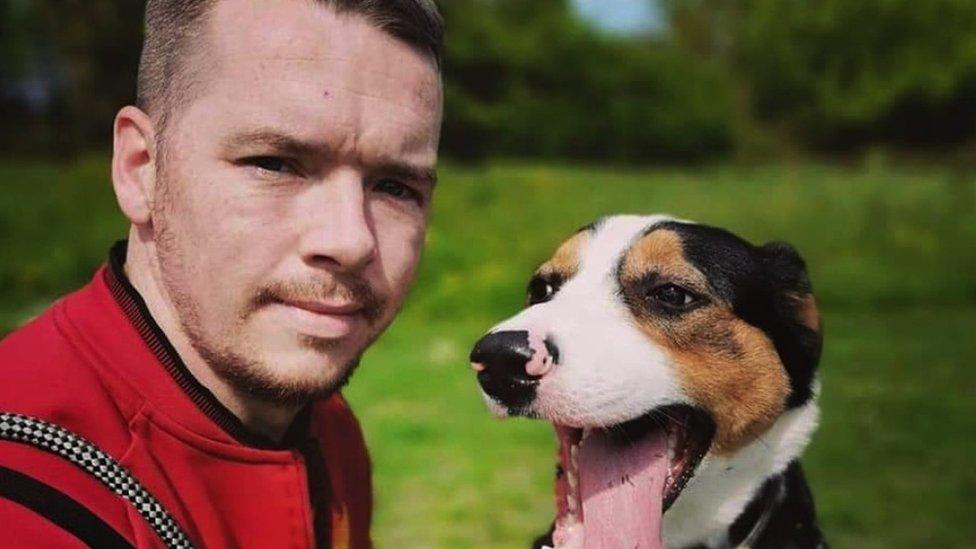
Mr Docksey said living with aphasia is "frustrating" and it has a huge impact on his life every day
A stroke survivor is calling for more understanding of his communication condition.
Mark Docksey, from Warminster, Wiltshire, suffers from aphasia as a result of a stroke in November 2021.
Aphasia, which affects more than 350,000 people in the UK, causes difficulty with speech and language.
Mr Docksey said: "I miss having a conversation with someone where I don't have to think three steps ahead of what I'm going to say."
The 38-year-old Royal Artillery veteran and NHS worker said that people often don't expect to hear him struggling to speak because he is young.
He said he uses humour as a "coping mechanism" and tends to make a joke out of it before other people can.
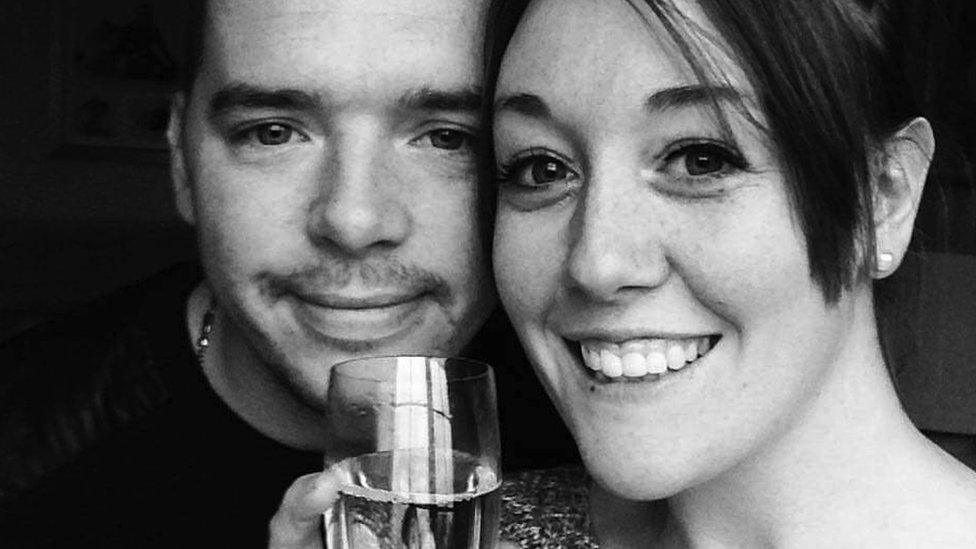
Mark's wife, Amanda (right), quickly realised that something was wrong when his stroke happened
"It's really difficult. Sometimes I miss being able to stand my ground.
"I feel like I can't do that because I feel a bit stupid, even though I know I'm not.
"I have a degree, I have all my qualifications and I like to think I'm quite bright, but that's sometimes how people make me feel", he said.
'Perfectly normal'
He described his life prior to his stroke as "perfectly normal."
His previous job as a nurse on a stroke ward meant he was quickly able to realise what was happening when he was having his stroke.
Although he was unable to speak during the stroke, his wife Amanda knew something was wrong when he could not write down what he was trying to say.
Scans confirmed that he had suffered an ischaemic stroke. , external
He said: "At the hospital I remember thinking that if they sent me home, I was going to die."
To aid his recovery, Mr Docksey underwent physiotherapy, occupational therapy and speech and language therapy.
'Misconceptions'
Now, the father of three is working to raise awareness of aphasia, external by backing a new campaign by the charity Stroke Association.
The organisation is launching a documentary which follows three stroke survivors who are living with the condition.
Jacqui Cuthbert, the Stroke Association's associate director for the South West and Channel Islands, said: "Most of us can't imagine living with aphasia, but it makes everyday tasks like getting on the bus or talking to a friend daunting, made worse by misconceptions that people with aphasia lack intelligence.
"This can often lead to anxiety and depression, feeling excluded from society and difficulties with personal relationships."

Follow BBC West on Facebook, external, Twitter, external and Instagram, external. Send your story ideas to: bristol@bbc.co.uk , external
Related topics
- Published2 February 2023
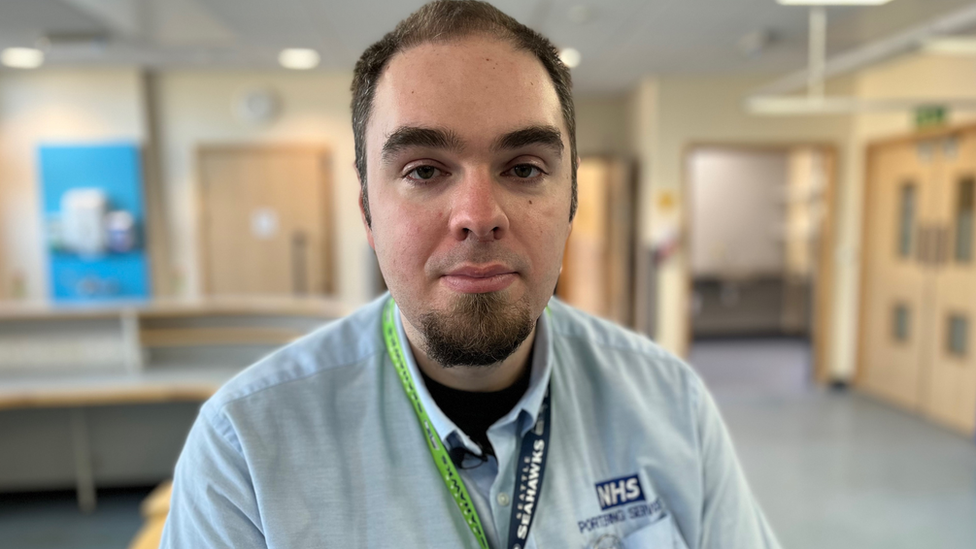
- Published28 July 2022
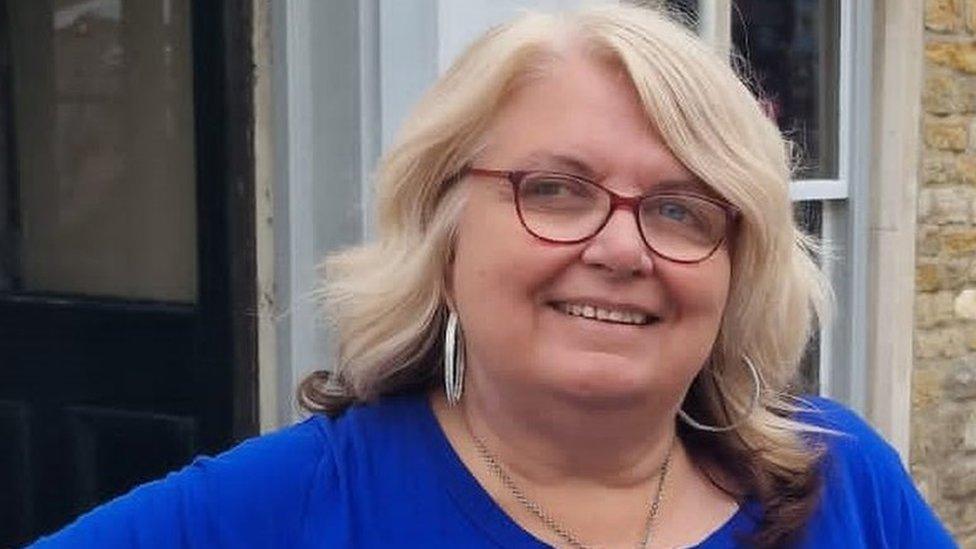
- Published14 January 2022
